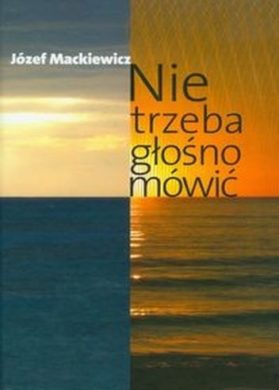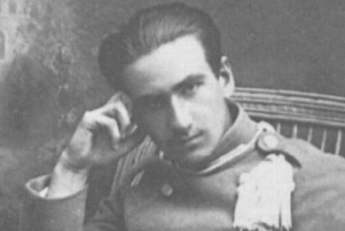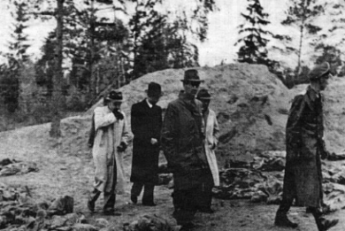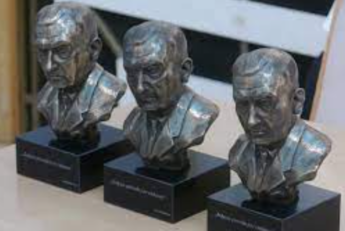
It is a novel that covers the history of the years 1941–1945, presented in this way as it was viewed and experienced by the inhabitants of the borderlands of the Polish-Lithuanian Commonwealth, in the Vilnius region and in Belarus. ‘Nie trzeba głośno mówić’, as the author himself claims, is a continuation of the ‘Road to Nowhere’, especially when it comes to the story itself and the main characters. However, when it comes to the discussed political issues and the author’s thesis, it can be suggested that this is part of the political thinking process which is presented in ‘Left Free’. In his introduction, the author emphasizes the authenticity of the historical background and facts of the novel, so that the whole novel has not only artistic and historical, but also political character.
Polish economist, habilitated doctor of law, professor of the Free Polish University and socialist activist Adam Pragier claims: “The last book by Józef Mackiewicz, ‘Nie trzeba głośno mówić’, is his greatest work. There is no doubt about that. But this is not just a novel. Its political load is so significant and important that it must also be regarded as a political treaty with an independent meaning. This is manifested not only in the words of the characters in the novel, but also in the great abundance of documents literally cited. “
According to Wit Tarnawski, a Polish writer and literary critic, there were always two trends in Mackiewicz’s works: he was interested in man, the fate of the individual and the history and history of the masses. These two currents were not easy for the writer to choose from. He was lifted up once by one, another time by the second one. Mackiewicz, however, sought to consolidate them. According to Tarnawski, ‘Nie trzeba głośno mówić’ is the most mature result of such a union, the best and richest historical reportage that Mackiewicz has written so far. Maybe it could even be called a historical epic or a drama of history. But not human epic. Individual people are dying there in the shadow of history, overwhelmed by its weight and even despite the will, they are not sufficiently differentiated by the author. Their role is minimal; they usually travel, see and talk a lot, highlighting the historical situation from different angles. What they say is lively and interesting, but they are rather informants, a tragic chorus, rather than people of a novel.





